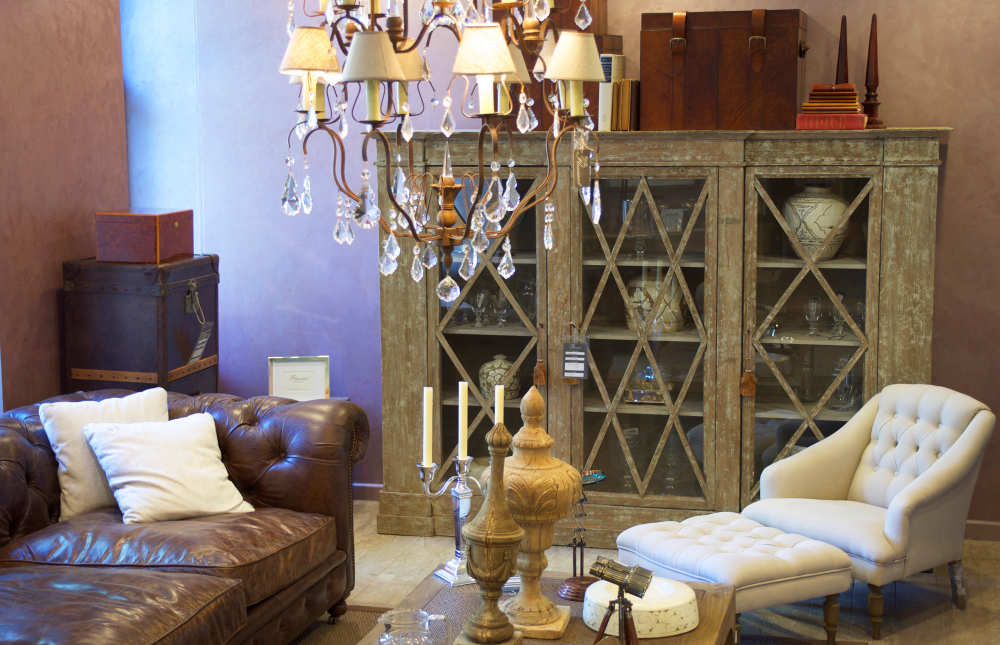
In a world where luxury and personal style reign supreme, bespoke home furnishings have emerged as the ultimate expression of individuality. Such custom-made pieces are crafted to your exact specifications, transforming ordinary rooms into highly personal retreats. Designers and homeowners alike are captivated by the unparalleled freedom and creativity that bespoke furniture provides.
By investing in a piece made just for you, every aspect from dimensions and materials to finishes is tailored to your taste, creating a seamlessly integrated look in your home. This tailored approach offers multiple advantages: you achieve a perfect fit and style from the outset, receive the highest level of craftsmanship, and enjoy lasting value over the years.
In this article, we highlight the top three benefits of investing in bespoke home furnishings design freedom and perfect fit, superior craftsmanship and longevity, and long-term value and prestige and explore related trends in custom design, sustainability, and maker selection.
Explore our curated Bespoke and Furniture collections to see how custom craftsmanship elevates every space.
Bespoke home furnishings are fully custom-made pieces designed to a client’s exact requirements. Unlike off-the-shelf furniture, each bespoke item is built from the ground up to reflect the owner’s personal style, needs, and space. This means the piece is truly unique — a one-of-a-kind creation that embodies the homeowner’s vision.
Bespoke home furnishings literally mean “made for you.” They are crafted from scratch based on your specific needs and preferences. In practical terms, this could be anything from a tailor-made sofa sized to fit a bay window to a custom dining table carved in your favorite wood species. Each element scale, silhouette, materials and details is chosen in collaboration with you.
As one design expert puts it, bespoke furniture “refers to custom-made pieces designed and built according to the customer’s specific requirements”. In contrast to mass-produced items, each bespoke piece is meticulously crafted to match your vision, resulting in a style and function that are perfectly aligned with your home and lifestyle. This personalized approach also means that no two pieces are alike; your furniture is an original reflection of your taste.

Custom-made furniture is rapidly gaining popularity around the globe. Homeowners and designers are increasingly drawn to unique, personalized designs that stand out. In fact, design trends show bespoke pieces have become a defining style for modern interiors, reflecting a broader shift toward individuality, sustainability, and quality.
Recent market data confirm this surge. The bespoke furniture sector is experiencing robust growth, driven by rising consumer demand for personalized luxury furnishings. Analysts project a compound annual growth rate of about 4.5% through the late 2020s, as more people seek out custom, high-quality craftsmanship.
One interior design authority notes that “one trend that’s surging in popularity is custom furniture bespoke, one-of-a-kind pieces that cater to both functionality and design aesthetics,” and it’s no passing fad but a defining feature of 2025 design. In practice, this means homeowners worldwide from London to Dubai to Tokyo are embracing made-to-measure furniture. They prioritize “unique, one-of-a-kind pieces,” leading to a rise in bespoke furniture especially in the luxury market.
As lifestyles change, urban spaces grow smaller, and environmental awareness rises, the appeal of tailored, sustainable solutions continues to fuel demand for custom furniture of all kinds.
Bespoke furnishings offer unparalleled creative control. You can specify every detail of a custom piece, its style, color, material, and exact dimensions so that it perfectly suits your needs. This means your furniture can fit any space and aesthetic. There are no constraints of standard sizes or styles when you go bespoke.
Custom pieces solve the all-too-common problem of furniture that’s “too large, too small, or just awkwardly-shaped for your rooms.” In a bespoke scenario, each item is deliberately tailored to your space. Whether it’s an oddly shaped alcove, a low-ceiling loft, or a compact nook, a made-to-measure sofa or cabinet will feel like it was “made for your home because it is”. Beyond size, you have full freedom to dictate the look and functionality of the piece.
You can choose the style (modern, rustic, traditional, etc.), the finish (fabric, wood grain, metal hues), and even incorporate unique features (built-in storage, tech charging ports, or folding extensions). This level of personalization means no compromise you get exactly what you need. As one design source explains, bespoke furniture is crafted to your exact specifications, bringing your vision to life in every detail.
In short, bespoke design means full creative control: from the perfect velvet armchair that fills an unused corner to a dining table shaped to accommodate your family gatherings, everything is built to be exactly right in your home.
Another key benefit of bespoke furniture is the emphasis on quality and durability. Skilled artisans handcraft each custom piece using premium materials, so the construction is exceptional. These items are built to be far more durable than typical mass-produced furniture. In practice, a bespoke item is often an heirloom meant to last for generations rather than wear out in a few years.
Because bespoke furniture is made one piece at a time, artisans can focus on fine craftsmanship in ways factory-line production cannot. Experts note that mass-produced furniture often involves “cost-cutting measures, with lower-quality materials”, whereas bespoke makers use “premium materials and superior construction techniques,” ensuring pieces are built to stand the test of time. For example, you might find handcrafted joinery, solid hardwood frames, or hand-finished details in a custom dresser that simply aren’t available in flat-pack furniture.
Each component is carefully chosen: woods are hand-selected for grain and strength, fabrics are chosen for durability, and every joint and finish is inspected. This dedication to quality means a bespoke chair or table will wear better and retain its beauty for decades. In practice, investing in such craftsmanship means your furniture won’t need frequent replacement truly lasting value.
In fact, many bespoke pieces become cherished heirlooms passed down through generations. Their superior construction is evident in both how they look and how they hold up over time. Simply put, bespoke furniture is a marriage of art and utility: you’re not just buying a piece of furniture, but securing a functional work of art that combines utility with exceptional craftsmanship.
Discover simple techniques in our guide on How to Clean & Care for Silver Tableware at Home.
Investing in custom furnishings can be prudent over time. Bespoke pieces command a higher initial price, but they deliver long-term value through durability and timeless design. Moreover, owning one-of-a-kind, handcrafted furniture confers a certain prestige. Each item becomes a signature piece in your home, a luxurious hallmark of your individual style.
Although bespoke furniture often requires a larger upfront investment, the value pays off in the long run. As one specialist blog notes, custom pieces “are built to last,” meaning fewer replacements and repairs over the years.
In fact, long-term savings and added home value often outweigh the initial cost: bespoke built-ins or fitted wardrobes can add significant resale value to a property. The timeless nature of bespoke design also contributes to value. Since you control the style and quality, you typically create pieces that never go out of fashion in your home’s context. They mature with your space and may even gain character with age.
Additionally, there is a prestige factor: bespoke furniture is the ultimate luxury statement. Every custom piece carries the story of craftsmanship and personal taste. In luxurious homes, such pieces become focal points and conversation starters, reflecting the owner’s discerning eye. In summary, with bespoke furniture “you’re investing in quality and durability”, and the payoff is both financial and emotional a refined home environment with pieces that feel truly special.

Custom furniture excels at maximizing functionality in any floor plan. It can transform awkward nooks, sloping ceilings, or narrow corridors into beautifully utilized spaces. Through clever design and integrated storage, bespoke pieces allow you to make the most of every square inch, keeping your home organized without sacrificing style.
Small or irregularly shaped rooms often suffer from wasted space or furniture that just doesn’t quite fit. This is where bespoke designs shine. Since each piece is built to precise dimensions, it can turn a design problem into a solution. For example, a bespoke bookshelf can be built around a door frame or radiator, and a custom sofa can fit a bay window alcove exactly. As one bespoke specialist puts it, “it’s easy to feel limited in small spaces… but custom-made furniture is perfect for making the most of every inch”. Designers frequently include multifunctional features: beds with built-in drawers, coffee tables with hidden compartments, or benches that lift open for storage.
Wall-to-wall cabinetry can be tailored to awkward corners, fully utilizing floor-to-ceiling height. These creative solutions keep clutter at bay while preserving a clean aesthetic. The result is a harmonious blend of style and practicality your storage needs are met seamlessly, and nothing looks out of place. In essence, bespoke furniture turns tight spaces into efficient, customized environments, a luxury that off-the-shelf items simply can’t match.
Bespoke furniture and mass-produced (ready-made) furniture differ fundamentally in quality and customization. Ready-made pieces are built to standardized designs and often use cheaper materials for cost-efficiency. In contrast, custom-made items are uniquely built for you, with premium materials and attention to detail. This contrast affects fit, finish, longevity, and overall value.
The most glaring difference is quality of construction. Mass-produced furniture is churned out of factories, where speed and cost-cutting can compromise durability. As one article explains, such pieces “involve cost-cutting measures, with lower-quality materials and less human involvement.” By contrast, bespoke furniture is “crafted with attention to detail and a commitment to quality,” producing items that are not only beautiful but built to last.
In practical terms, a ready-made dresser might use particleboard and staples, whereas a custom one uses solid hardwood and reinforced joinery, meaning it can survive decades of use. Another key distinction is fit and uniqueness. Ready-made items come in fixed sizes and standard styles; buyers must often compromise. With bespoke pieces, “every piece is tailor-made to suit the exact measurements of your space,” eliminating ill-fitting furniture. You can also choose any design: minimalist, classical, or eclectic, and ensure it matches your décor perfectly.
Ultimately, bespoke furniture offers full personalization and higher craftsmanship, while mass-produced furniture offers convenience and lower cost. But for those who value individuality and longevity, custom-made usually proves the superior choice.
Custom furniture can be an eco-friendly choice. By its nature, it encourages responsible practices: local craftsmanship, careful material selection, and long-lasting construction. Because you only make what you need, there’s less waste. And since well-made pieces endure for decades, they reduce the demand for frequent replacement, aligning bespoke design with green living ideals.
Bespoke furniture often embodies sustainability in several ways. First, many bespoke workshops source materials responsibly, using durable, eco-friendly woods and fabrics that have been ethically harvested. Because pieces are made to order, there’s minimal excess production and you aren’t throwing away surplus inventory. Craftsmen frequently build these items to endure, so your furniture will last far longer.
This longevity “reduces the need for frequent replacements and lowers your overall environmental footprint”. Moreover, choosing local artisans means supporting smaller-scale operations, which cuts down on the carbon emissions associated with global mass manufacturing and shipping. As one company notes, buying custom-made furnishings “supports local craftsmanship and reduces the carbon footprint associated with large-scale manufacturing and transportation”.
In summary, bespoke design encourages conscientious consumption: it’s a more sustainable alternative to the throwaway culture of cheap, mass-produced items.

Finding a skilled craftsman or studio is essential to achieve the best results. You want someone whose experience, style, and process align with your vision. This means doing research: review their past work, check references, and make sure their materials and timeline suit your project. A good maker will guide you carefully through each step.
Evaluating these factors experience, reviews, process, materials, and timeline will help you choose a bespoke furniture maker that delivers the design, quality, and service you need.
This is perhaps the most common question. The truth is that bespoke pieces often prove very cost-effective over time. Their superior durability and timeless design mean you won’t be replacing them frequently, saving money in the long run. Plus, well-made custom furnishings can even add value to your home.
When evaluating the investment, it’s helpful to look beyond the sticker price. Bespoke furniture may cost more upfront, but you are essentially buying quality and uniqueness. As one reviewer points out, these pieces have “lasting value and enjoyment,” since they’re “built to last”. Compared to mass-market furniture (which may break or date quickly), a handcrafted table or wardrobe often outlives several cheap replacements. This longevity literally saves you money over time.
Additionally, bespoke features can enhance your home’s appeal; custom storage or decorative elements can increase the usability and perceived value of your space. Finally, consider the emotional value: bespoke furniture often becomes a cherished part of your home’s story, further justifying the cost.
In summary, while the initial price is higher, the combination of superior craftsmanship, long-term durability, and exclusive design means custom furnishings are frequently a worthwhile, even savvy, investment.
Embracing bespoke home furnishings is embracing a philosophy of luxury and longevity. Custom pieces offer creative freedom, unmatched quality, and a unique sense of identity in your home. They solve design challenges seamlessly and often prove more sustainable and valuable over time. For those seeking these benefits, Ravissant’s own collections exemplify the bespoke ethos.
Our Bespoke and Furniture categories showcase artisanal craftsmanship and refined design that fit your space and style perfectly. Each item is carefully crafted to the highest standards, so you can live in a home that is as unique and enduring as you are. Explore our curated offerings to transform your interiors with furniture that truly reflects your vision and taste.
Bespoke furniture offers a perfect fit, full personalization, and superior craftsmanship. Every detail size, style, material reflects your taste, ensuring your home feels unique, functional, and truly tailored to your lifestyle.
Ready-made furniture comes in standard sizes and uses lower-cost materials. Bespoke pieces are custom-built, crafted from premium materials, and designed to perfectly suit your space, offering greater quality, longevity, and personal style.
Yes, bespoke furniture reduces waste as it’s made-to-order. Many makers use responsibly sourced materials and local artisans. Its durability means fewer replacements, making bespoke a more sustainable, eco-friendly choice for conscious homeowners.
Research portfolios, reviews, and design processes. Choose makers with proven craftsmanship, transparent communication, and premium materials. A reputable artisan will collaborate with you at every stage to ensure exceptional, personalized results.
Absolutely. Though more expensive upfront, bespoke furniture lasts far longer than mass-produced alternatives. It offers lasting quality, adds value to your home, and delivers unique, meaningful pieces that become part of your home’s story.